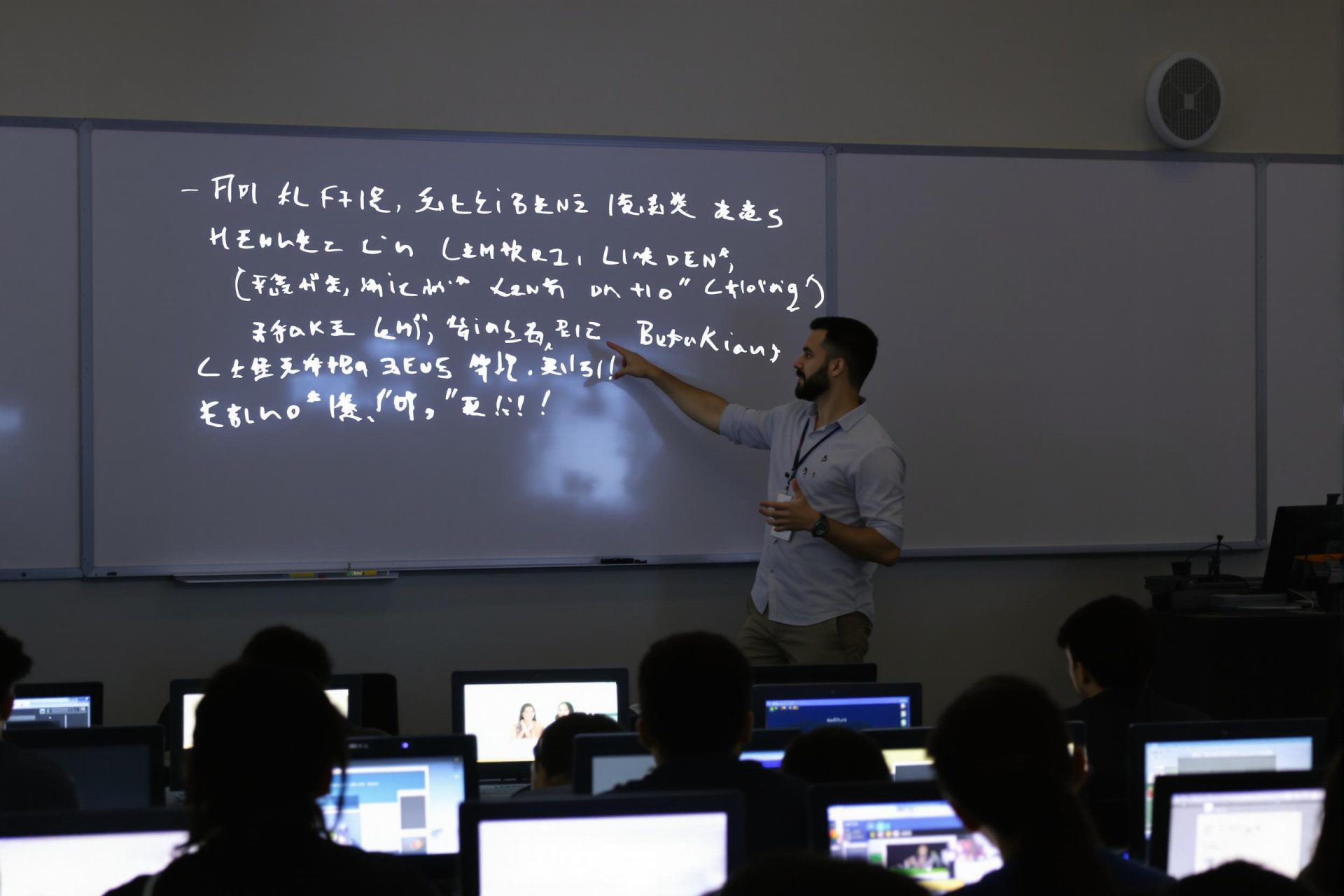Key Takeaways
- AI is making real-time language translation a reality, significantly reducing communication barriers.
- This technological shift sparks a call to re-evaluate the strong emphasis on foreign language education in schools.
- The article suggests that subjects fostering critical thinking and foundational knowledge, like science and technology, are increasingly important for an AI-driven future.
- Skills in problem-solving and the effective use of AI tools may become more valuable than deep language fluency for many individuals.
- A renewed focus on foundational sciences and analytical abilities is advocated, as these are areas where human intellect remains irreplaceable.
Rapid advancements in artificial intelligence are changing how we communicate. We’re seeing tools emerge that can translate speech in real-time, even during phone calls.
This isn’t science fiction. People are already using AI chatbots to effortlessly bridge language gaps in everyday situations, helping them communicate across languages, even when discussing specialized topics.
AI’s capabilities now extend beyond simple translation. It can summarize lengthy documents and provide direct answers about their content. This means understanding foreign materials increasingly depends on subject knowledge rather than language proficiency alone.
These developments suggest it’s time to rethink the goals and curriculum for foreign language education across all academic levels, according to an opinion piece from vnexpress.net.
The article points out that while many educational systems emphasize foreign languages, particularly English, for crucial exams, this approach might need reconsideration in the coming years.
Perhaps subjects like natural sciences, technology, history, and geography would better equip students for a future increasingly shaped by artificial intelligence.
The aim should be to guide students towards disciplines that build foundational knowledge and logical reasoning. This prepares them for a world where AI acts as a tool, and humans serve as the thinkers and decision-makers.
The long-held belief that fluency in English is essential for a global career may soon become outdated. In this evolving landscape, individuals who skillfully use digital tools, identify needs, and solve complex problems will likely lead the way.
This isn’t to say that foreign languages no longer matter. They remain vital, particularly for researchers or professionals engaged in deep collaboration with international partners.
However, for the average student, dedicating excessive effort to mastering complex grammar or rarely used sentence structures might not be the most effective use of their time, especially when many native speakers themselves seldom use these forms.
That time could arguably be better spent strengthening analytical thinking, developing logical frameworks, and building a solid understanding of the world.
These are areas where AI cannot substitute human intellect, and indeed, AI needs users with underlying knowledge to be truly effective.
Consider a future business meeting: participants each speak their native language while AI provides real-time translation, adjusting for tone, context, and technical terms. In such a scenario, what truly differentiates one person from another?
It likely won’t be their language skills, but their ability to think critically, ask meaningful questions, and contribute insightful ideas.
The author believes it’s time for a fundamental shift. English, while still a valuable skill, is becoming just one of many tools. Our focus should return to foundational sciences, seen as the true engines of innovation and progress.
Time is limited, and the pace of technological change is accelerating. Failing to choose the right educational direction now could mean finding ourselves too far behind to catch up.



